News
-
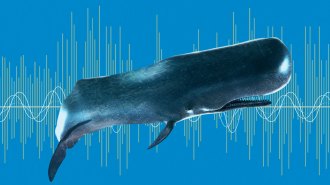
For deep-diving whales, plastic garbage may ‘sound’ like food
Experiments show that the acoustic signature of plastic and prey is similar. That may confuse whales that use echolocation to hunt.
-
 Archaeology
ArchaeologyA digital exam reels in engraved scenes of Stone Age net fishing
Nearly 16,000-year-old portrayals of fish surrounded by nets had evaded detection until a new technique took magnification to a new level.
By Bruce Bower -
 Archaeology
ArchaeologyA huge, ancient Maya city has been found in southern Mexico
Lasers revealed that the city spanned roughly the same area as Beijing and may have been among the most densely populated in the region.
-
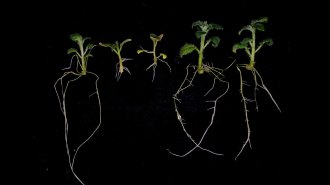 Agriculture
AgricultureExploiting a genetic quirk in potatoes may cut fertilizer needs
A gene controlling potato growth limits the plant’s fertilizer uptake. Tweaking related genes could lead to more sustainable potato varieties.
-
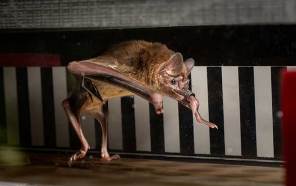 Animals
AnimalsPutting vampire bats on treadmills reveals an unusual metabolism
A bat gym shows that vampires are more like some insects, burning amino acids from blood proteins rather than the carbs or fats other mammals rely on.
By Susan Milius -
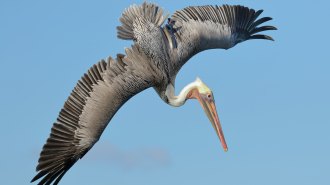 Tech
TechFeather-inspired airplane flaps could boost flight performance
Rows of flaps inspired by bird wing feathers improve airfoil performance by boosting lift, reducing drag and mitigating stall.
By Nikk Ogasa -
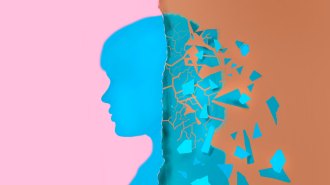 Anthropology
AnthropologyThe ‘midlife crisis’ is too simple a story, scientists say
Some scientists want to shift focus to the teen mental health crisis. But the course of happiness is too complex for simplistic theories, experts warn.
By Sujata Gupta -
 Humans
HumansA phone app could help people have lucid dreams
New experiments show that an app developed by researchers can boost snoozing users’ likelihood of knowing when they are having a dream.
-
 Psychology
PsychologySmiles tweaked by AI can boost attraction, a speed-dating study shows
Using face filters to alter expressions manipulated feelings of attraction, raising questions about how such technology may influence social interactions.
-
 Space
SpaceA distant quasar’s black hole is oddly huge for its galaxy
The black hole’s mass is over half that of all the stars in the surrounding galaxy, a record for any galaxy hosting a quasar.
By Ken Croswell -
 Health & Medicine
Health & MedicineLimiting sugar in infancy reduces the risk of diabetes and hypertension
Children who experienced sugar rationing during World War II were less likely to develop some chronic illnesses as adults than those with no rationing.
By Skyler Ware -
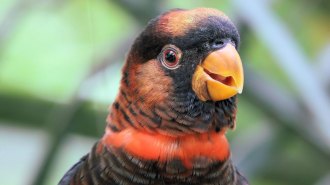 Animals
AnimalsA single enzyme can alter the vibrant colors in parrot plumage
Tweaking the chemical composition of a parrot-specific pigment can shift feathers from red to yellow or green.